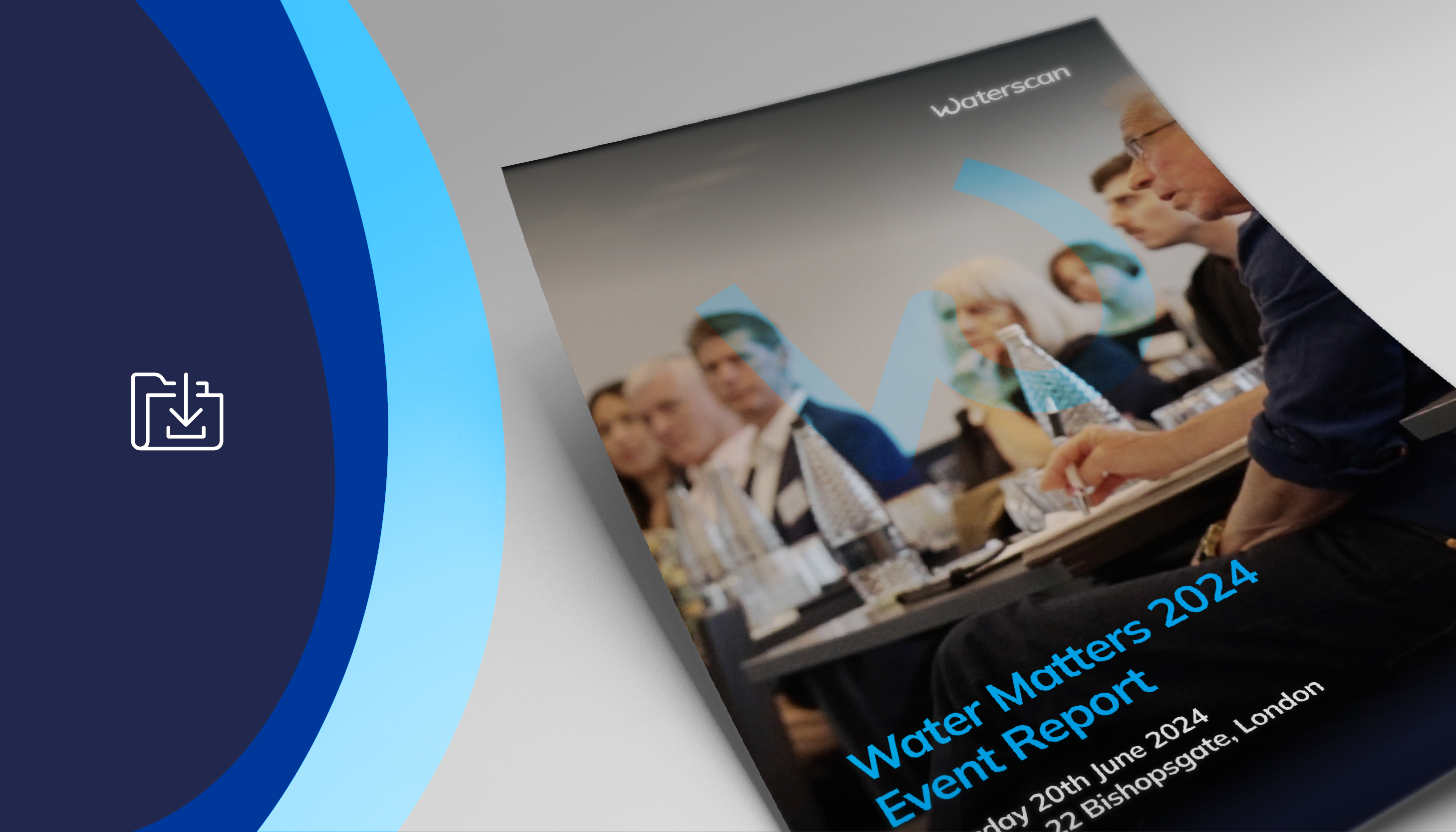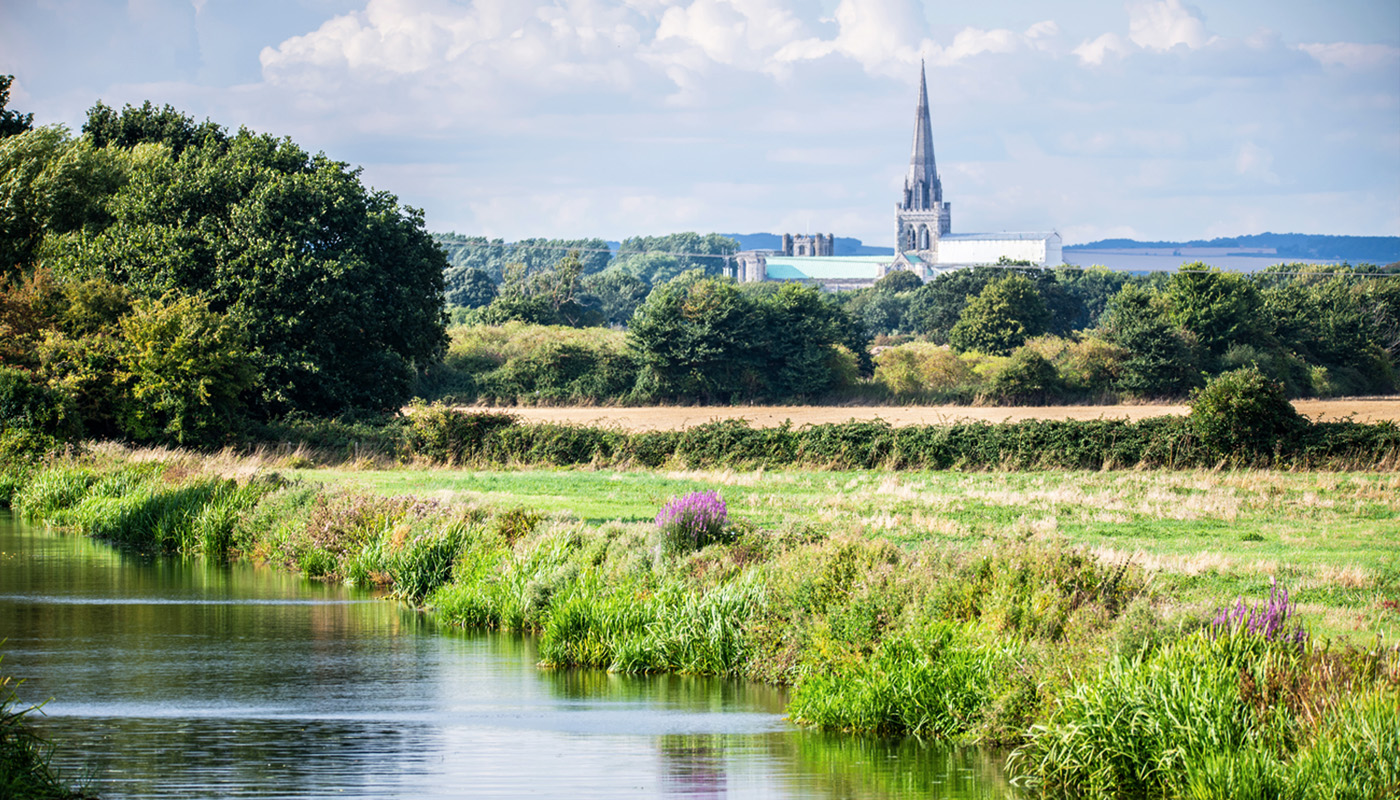Neil, what were your takeouts from the first Water Matters conference?
Last year, Water Matters illustrated just how important the topic of water is, and how few people are coming together to talk about it. This signals to me that many businesses aren’t seeing the full extent of the climate-related risks that are just down the line and they’re missing opportunities to be proactive on these.
The threat of interruptions to water supply is increasing and, unless we collectively work to improve our resilience, regular interruptions will become a harsh reality.
And that collective action is what Water Matters hopes to inspire, isn’t it?
Absolutely. Chris Hines wowed the group last year – it was clear to see how much he inspired people, so I’m looking forward to hearing from him again, as well as Tony Juniper and Jessica Sansom – they will all bring unique perspectives to the debate on water.

Face to face events are massively beneficial. Bringing people together to network is so important in building partnerships to work through challenges and take advantage of the opportunities that these bring to the table.
What’s fantastic about Water Matters is that it really gets to the heart of things. There’s no fluff in this agenda, nor any navel-gazing or mudslinging! This is future-focused work and all key stakeholders are in the room – the regulator Ofwat, the market operator MOSL, the Strategic Panel, board level managers from water wholesalers and customers – we’re all working together to find solutions to what are becoming increasingly pressing issues.
It has been a high profile year for the water sector with regular news of flooding, drought and pollution incidents. What impact do you think this has had on customers?
Yes, water has been receiving a lot of attention. While this has been largely negative, it’s important to put this in context and remember that the quality of water provided across the country is first class and that wastewater services work well most of the time.
However, there’s no doubt that current customer perceptions of the water industry are poor. I believe this is because water companies lost focus on the two most important things, customers and the environment, and this has created a wide credibility gap. Add volatile weather patterns into that mix and we’ve arrived at a lack of resilience to increasing demand fluctuations. Services get stressed pretty quickly, which is very disruptive to commercial and public sector operations.
What we need to do now is to recognise that risks of water-related events are increasing rapidly, and that businesses responding to these risks will achieve far greater returns than ever before.
Why is this?
There are some significant changes on the horizon.
We’ve got big price increases looming. The cost of water is going to rise by circa 50% over the next 5 years as a result of inflation and the regular industry price review. These rising costs will apply across the board but they will not fall equally. This will be cumbersome for customers to say the least, especially if they’re not planning ahead for these costs at site-level.
Then, we’ve got major changes to the way that water is charged for. Water will become more expensive the more you use, not cheaper as is currently the case. We can also expect to see peak time tariffs introduced which will make water more expensive in summer months, for example.
These are good initiatives, reflecting the extent of the work that needs to be done to make the UK’s water systems resilient. But of course there are going to be winners and losers in all this. Some customer sectors and geographics will be impacted severely – operationally, financially and administratively – others less so.
The key thing is that we know all this is coming so we can plan ahead and act accordingly knowing that these challenges are all opportunities. Rising costs make the investment case for action better and speed up progress. It is perfectly possible for most business water users to offset the impact of these changes but it requires real application of both time and resources. Companies that give this focus will create operational efficiencies, reduce financial burden, and become more resilient to climate change.
Do you think all stakeholders are aligned on this?
The short answer is yes.
Defra has made water stewardship a critical environmental issue. Ofwat and the Strategic Panel are creating the necessary regulatory frameworks and a future direction with environmental performance and net zero pathways at their core, and MOSL is working through the practical market implications to deliver against these.
It’s clear that the regulator wants to see a faster rate of change, but, at the current trajectory, the industry’s capacity to accelerate progress isn’t going to be aligned with customer expectations or meet the needs of the environment.
So now it’s up to non-household customers to make the difference. Here is where the opportunities for innovation and resilience lie. I firmly believe that businesses want to do the right thing so, given the tools, support and incentives to work with, it’ll be done.
In your experience from supporting a wide range of non-household water customers, what holds them back from taking the initiative on water?
Water is a complex space and it can be hard to get your head around it. You need a little technical knowledge of the detail as well as an appreciation of the bigger picture. It’s important that people know that conserving water also enhances other sustainability programmes of work. Water can no longer be separated out from the whole climate agenda.
But, as I said, if we have foresight and we can see the challenges ahead, we can do something about them. Smart metering will underpin this and this is another major change on the horizon. More rigorous site data will support customers in taking targeted action and creating effective mid-long term roadmaps aligned to their business strategy. This data will also drive better corporate disclosure on water which will raise it up the priority agenda for all organisations.
This is the purpose of Water Matters: to connect people and equip them to go back to their businesses, informed and inspired to begin putting adaption plans in place. Across the water sector, investors and regulators are looking for innovative ideas and inspiring leadership to uncover the opportunities that will spark widespread change in how we value and use water.
What would you like to have seen happen by the time we come to talk about Water Matters 2025?
I’d like to see more data in the market through smart metering so that more customers are able to identify issues like leaks and fix them quickly, and more widespread disclosure to help them understand their water use and plan more effectively with a robust roadmap and targets.
I’d also like to hear some case studies on how behavioural change initiatives are showing promise in engaging staff and visitors to reduce consumption and safeguard water supplies.
More than anything, I’d like to see that all stakeholders are benefiting from the inspiration, peer to peer learning and collaboration that Water Matters has offered this year. This is how we can make change happen.
Find out more about Water Matters 2024 here.




